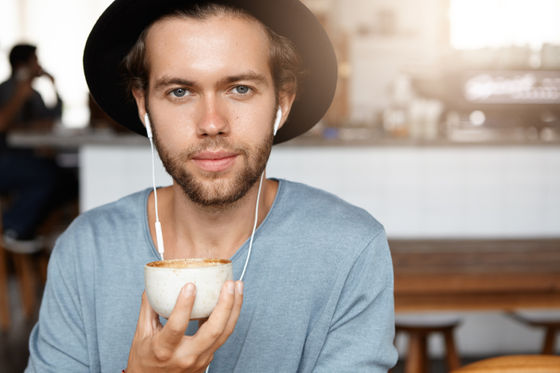Coffee poses risk of hearing loss, especially for young people and men

A cup of coffee every morning not only
Association of coffee consumption with the prevalence of hearing loss in US adults, NHANES 2003–2006 | Public Health Nutrition | Cambridge Core
https://www.cambridge.org/core/journals/public-health-nutrition/article/association-of-coffee-consumption-with-the-prevalence-of-hearing-loss-in-us-adults-nhanes-20032006/D0A4BA5E60DDACEAF3D78C5DE657285A
Association between caffeine intake from foods and beverages in the diet and hearing loss in United States adults - PubMed
https://pubmed.ncbi.nlm.nih.gov/39114534/
Your Morning Coffee Could Be Quietly Causing Hearing Loss, Study Reveals | Headphonesty
https://www.headphonesty.com/2024/10/coffee-habit-could-be-hurting-your-hearing/
In a study published in July 2023, Qingsong Chen and his colleagues from Guangdong Pharmaceutical University in China analyzed the relationship between hearing test results and coffee intake of 1,894 adults aged 20 years or older who participated in the US National Health and Nutrition Examination Survey (NHANES).
Based on their hearing test scores, the researchers categorized participants into those with voice frequency hearing loss (SFHL), which affects the ability to understand speech, and those with high frequency hearing loss (HFHL), which affects the ability to hear alarms and bird calls. They also categorized participants into five groups based on their average daily coffee intake: 0, 1 or less, 1, 2-3, or 4 or more cups.
The results were as follows: For both types of hearing loss, the higher the coffee intake, the higher the prevalence of hearing loss.
| Daily coffee intake | SFHL | HFHL |
|---|---|---|
| 0 cups | 23.32% | 32.73% |
| 1 cup or less | 26.58% | 40.51% |
| 1 cup | 45.05% | 63.94% |
| 2-3 cups | 46.43% | 66.27% |
| 4 or more cups | 48.18% | 67.15% |
The association between coffee consumption and HFHL was particularly significant among men, and non-Hispanic whites who drank four or more cups of coffee per day were nearly twice as likely to have SFHL as those who did not drink coffee.
Because this is an observational study, a causal relationship between coffee consumption and hearing loss cannot be proven; however, caffeine is a likely candidate for the reason that coffee drinking leads to hearing loss.
Caffeine is similar to adenosine, which is synthesized in the body when you are tired, and by binding to the adenosine receptors in the brain, it prevents you from feeling drowsy.
In fact, adenosine receptors are also present in the cochlea, the organ in the ear that controls hearing, and adenosine works to reduce blood flow to the cochlea and reduce oxidative stress.
This means that the caffeine we ingest from drinking coffee can reduce blood flow to the cochlea, potentially impeding its ability to recover from damage caused by noise exposure.

In particular, men have longer cochleae than women, and the female hormone estrogen has a function of protecting the cochlea. It is thought that these differences may be the reason why men are more susceptible to coffee-induced hearing loss than women.
The relationship between caffeine intake and hearing loss was also confirmed in a July 2024 study, which found that people with caffeine intake above the median had a significantly higher rate of hearing loss than those with low caffeine intake. Specifically, people with high caffeine intake had a 10% to 15.4% increased SFHL risk and a 20.6% to 30.5% increased HFHL risk compared to those with low caffeine intake.
Particular attention is required of relatively young people between the ages of 20 and 64. This is because the effects of hearing loss do not appear immediately in young people, and damage to the ears can accumulate without them realizing it, which could lead to major problems in the future.
Headphonesty, an audiophile media outlet that covered these research results, commented, 'We're not saying you should stop drinking coffee, but people in high-risk groups may want to reconsider how much they drink.'
Related Posts:







